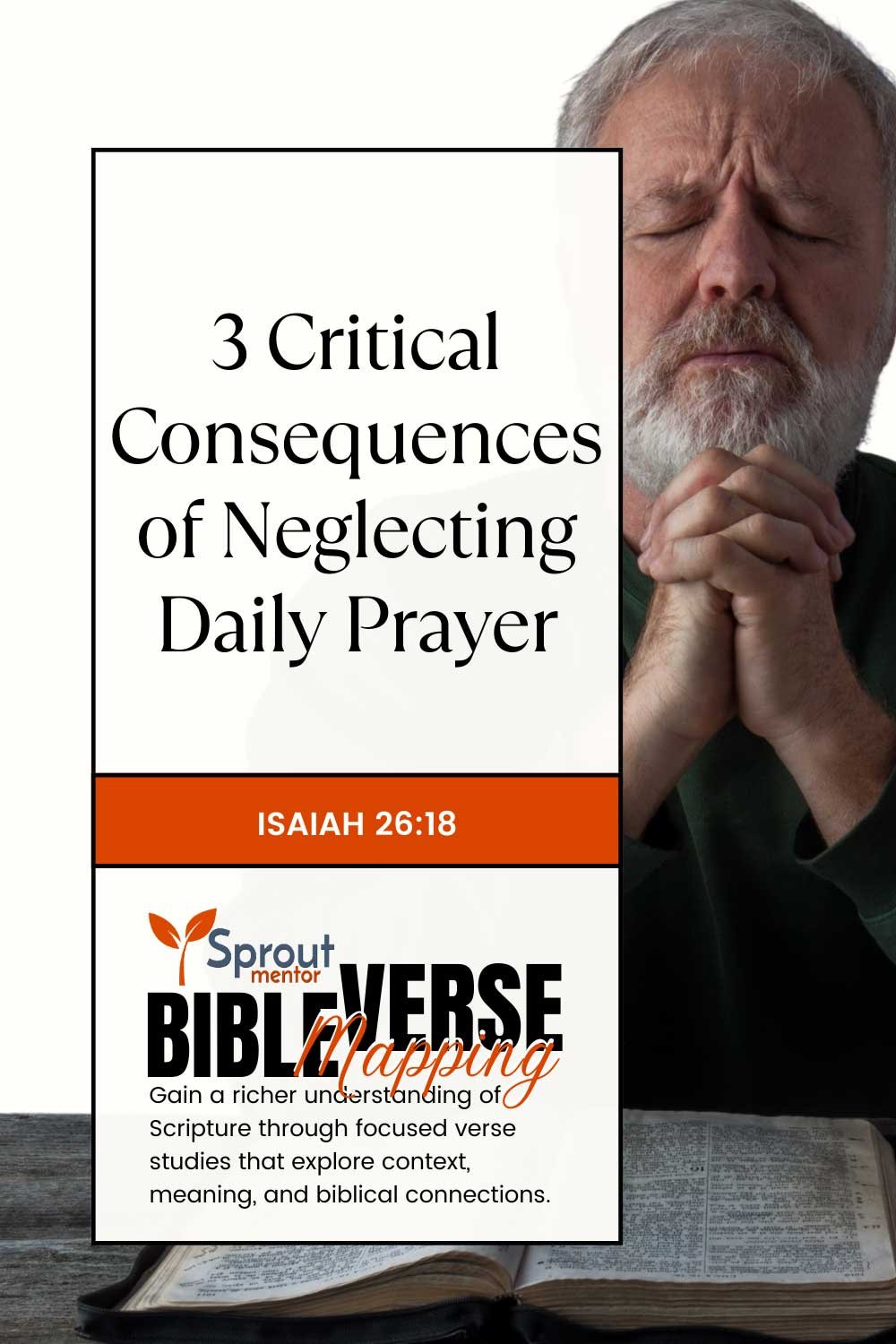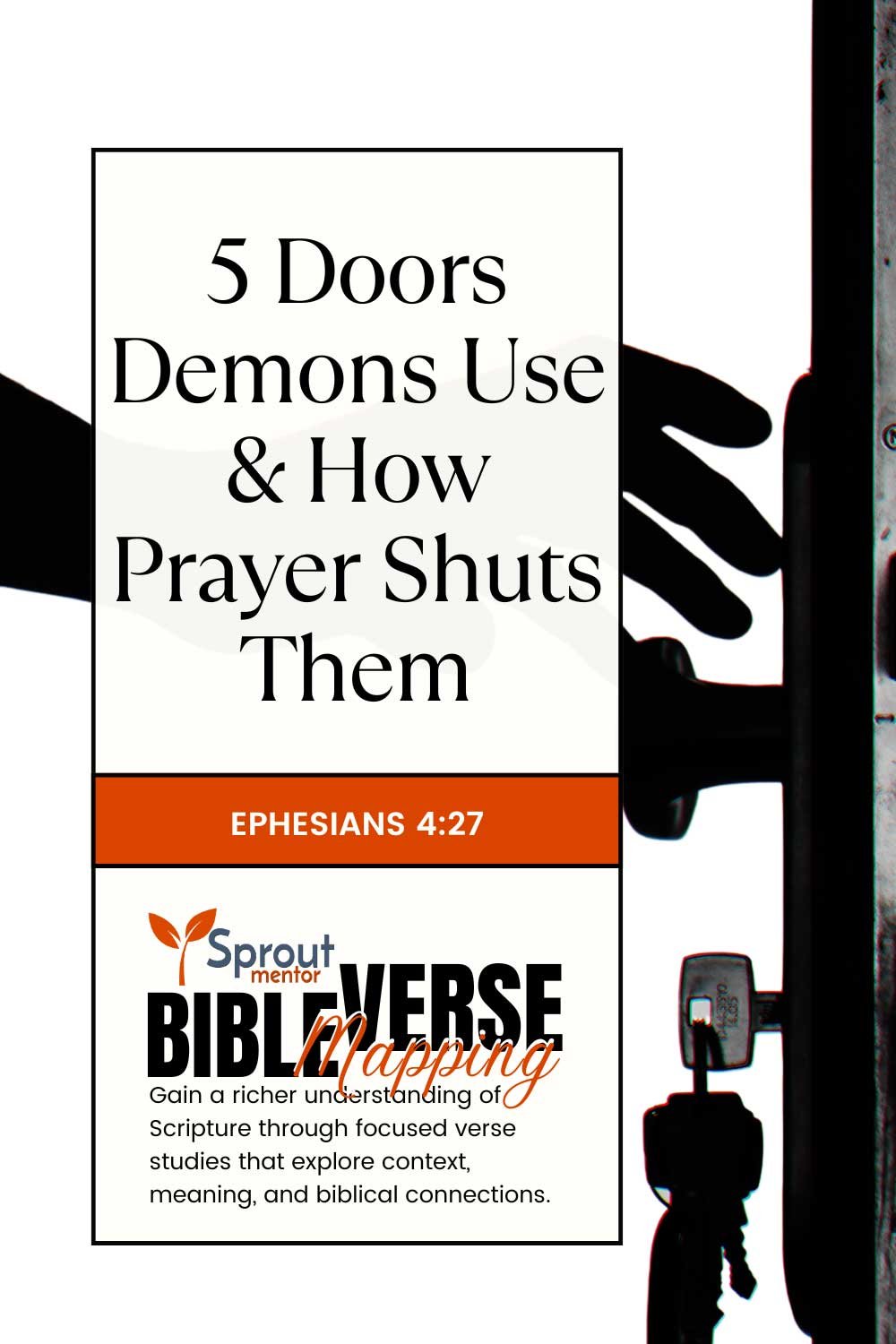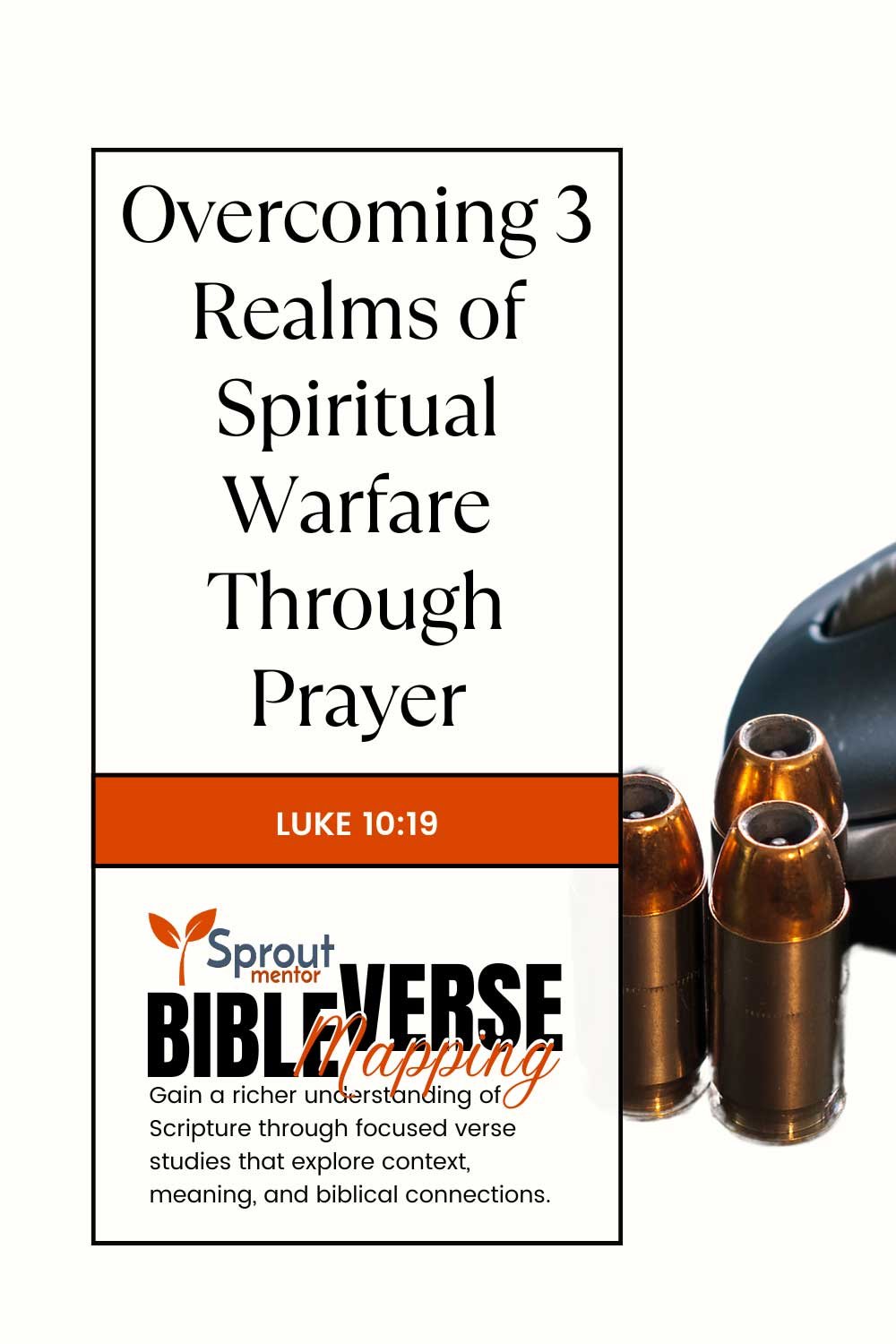3 Critical Consequences of Neglecting Daily Prayer (Isaiah 26:18)

Share This Blog Post On:
Short on time, but big on faith? We break down complex topics into easy-to-understand chunks, making the Bible accessible to everyone. Join us for answers to your Bible questions and encouragement for your daily walk with God. Click here to grow your faith, one byte at a time!
“We have been with child, we have been in pain, we have as it were brought forth wind; we have not wrought any deliverance in the earth; neither have the inhabitants of the world fallen.” (Isaiah 26:18, KJV)
Isaiah 26 is a song of praise that reflects on God’s ultimate victory and the hope of His people. Verses 16-18 focus on the futility experienced by those who approach God only in times of distress, without cultivating a daily habit of prayer. Isaiah 26:18 serves as a sobering reminder of the futility of inconsistent prayer. Let us explore the three critical consequences that come from prayers offered in desperation rather than as a daily discipline.
Consequence One: Unanswered Prayers
“We have as it were brought forth wind” – this powerful metaphor describes prayers that yield no results, like labor pains that produce only air. Without regular prayer, believers fail to exercise their spiritual muscles, leading to weak, ineffective prayers. Consistent prayer strengthens our faith, aligns our will with God’s, and makes our petitions more fervent and effective (James 5:16).
For instance, Daniel prayed three times daily regardless of circumstances (Daniel 6:10-11). When the crisis came in the form of a lions’ den, his practiced prayer life sustained him. Also, Paul and Silas prayed and praised in all circumstances – even in prison (Acts 16:25). The prayers of these men weren’t just hot air – they moved heaven and changed nations.
Daily prayer fosters a deep, ongoing relationship with God, rather than a ritualistic approach. This relationship is key to answered prayers, as Jesus emphasized in John 15:7: “If you abide in Me, and My words abide in you, ask whatever you wish, and it will be done for you.”
Consequence Two: Lack of Deliverance
The second outcome mentioned is “we have not wrought any deliverance in the earth.” This speaks to our ability to impact others through our prayers. Those who pray sporadically often find themselves unable to effectively minister to others or bring about meaningful change in their sphere of influence.
Moses’s regular encounters with God on Mount Sinai equipped him to lead and deliver an entire nation. His consistent prayer life didn’t just benefit him – it impacted generations. Consistent prayer empowers believers to stand in the gap for their families, communities, and nations, bringing about transformation and freedom (Ezekiel 22:30).
Consequence Three: Loss of Territory
The final outcome, “neither have the inhabitants of the world fallen,” reveals how irregular prayer can leave us vulnerable to spiritual opposition. Without a strong prayer foundation, we may find ourselves overwhelmed by circumstances rather than overcoming them. Daily prayer helps believers to walk in their God-given authority, as outlined in Luke 10:19: “Behold, I give unto you the power to tread on serpents and scorpions, and over all the power of the enemy: and nothing shall by any means hurt you.”
Consistent prayer acts as a spiritual defense mechanism, protecting believers and their territories from being overtaken by the enemy. Isaiah 49:24-26 assures us of God’s deliverance and protection when we remain steadfast in prayer.
In conclusion, prayer is not about perfect words or lengthy sessions. It’s about consistent, honest communion with God. When we commit to daily prayer, we position ourselves for transformation. Instead of bringing forth wind, we bear spiritual fruit. Rather than remaining powerless, we become channels of deliverance. Instead of falling prey to circumstances, we stand strong in spiritual authority.
Are you an emergency prayer warrior, or are you developing the spiritual discipline of daily prayer? The choice is yours, but the outcomes are clear.
Continue Reading More On The Prayer Guides Below:
|







